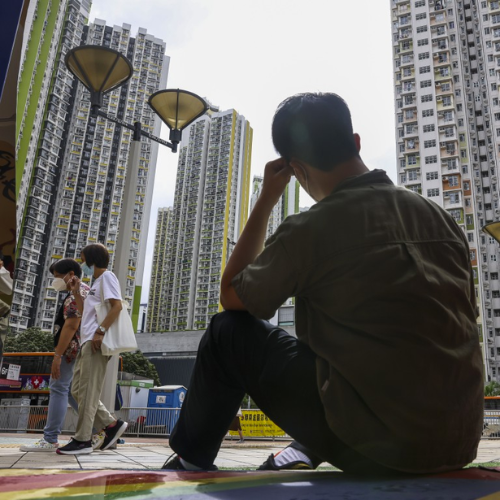Unfortunately for families who are unable to pay, the public school system is ill-equipped to prepare young people to meet the demands of the competitive labor market. It’s not simply a function of rote memorization versus critical thinking, though that is a factor. Many lower-band public schools cannot provide quality teaching. While foreign talent attraction is important, leveling up local education is more urgent. It also creates a natural attraction for returnees who left Hong Kong to seek better education elsewhere.
Low-quality housing aggravates educational polarization and is a burden on societal development. Children studying in cramped, subdivided, substandard flats are at an immediate disadvantage. While temporary flats provide short-term alleviation, long-term solutions must be built on equitable access to quality homes, a foundation for productivity and progression. Imagine rapidly converting a brownfield site into a radically new model of high-design, minimal-cost accommodation with natural light, gardened common spaces, and quality amenities. It’s not inconceivable. Flats could be offered via lottery to the entire public housing waitlist, creating excitement and confidence in government.
Given our unique socioeconomic factors and institutions, it is time to define what high-quality development means in Hong Kong. It starts with ensuring basic needs are met, restoring optimism, and growing people’s sense of ownership in the future (Lee Kuan Yew’s basic formula for Singapore’s success!), especially among the youth. National policies can be leveraged to provide legitimacy while adapting to local realities. Common prosperity, a cornerstone of China’s vision for its high-quality development, carries less cachet among Hong Kong SAR’s policy and business leaders, despite visible, abhorrent levels of inequality.
A common refrain is that Hong Kong is capitalist, not socialist. It’s time to set aside such false dichotomies and address deep-rooted social problems. It requires moving beyond archaic economic ideas like low taxes — high land premiums that have become an obstacle to progress. Similarly, wealth redistribution should not be limited to handouts in the form of consumption vouchers, but instead rooted in smart investments in societal development: education, health and housing.
Hong Kong has traditionally looked to Western economic development models, premised on laissez-faire economics and the primacy of technology, markets and finance. The 2023-24 budget reflects ideological trappings, replete with buzzwords like digital economy, Web3 and GreenFi Centre. External validation is still sought through rankings on global competitiveness or GDP growth, despite being simplistic, often politically motivated indicators. It yields a narrow, reactive, and inadequate approach to development. To those struggling to secure their basic needs, a decline from fifth to seventh on the global competitiveness ranking is inconsequential and even irrelevant.
A fundamental rethink is needed. It starts with a clear vision of what high-quality development means in Hong Kong. To be truly competitive in the new era, there must be a greater focus on social mobility, quality of life, and opportunities for all. Continued failure will result in persistent inequality, lack of hope, and social polarization. It’s high time for a bold new vision for Hong Kong’s high-quality development.

























